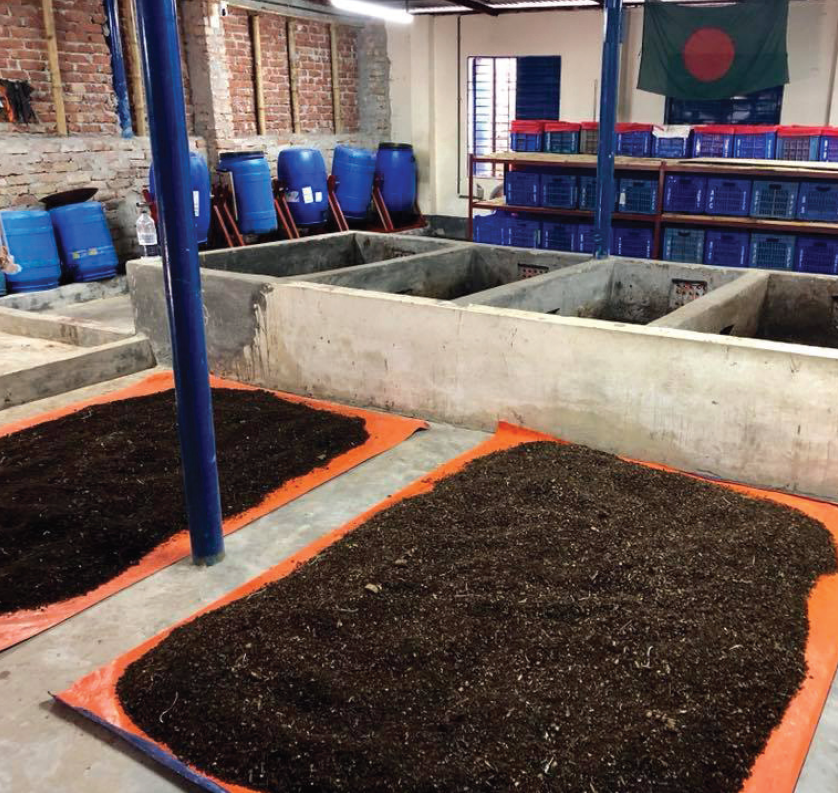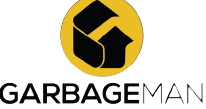GARBAGEMAN
Fahim Uddin Shuvo, Founder and CEO of GARBAGEMAN started the company with the vision to bring the waste management system of Bangladesh in order, being an architect. He incorporated modern solutions to his service, to provide eco-friendly and efficient waste management solution. He dreams to utilize waste as a key resource and make significant contribution towards a cleaner Dhaka.


Source of inspiration
Fahim Uddin Shuvo, founder of GARBAGEMAN is an architect who started this venture from sense of obligation towards the community. He saw that there is a huge issue of lacking in waste disposal in a megacity like Dhaka, which he thought needs to be rectified. He was looking for innovative means by which he could solve the waste problem of cities. His mission in simple terms is to establish Garbageman as a trendy waste recycling company and his vision is to utilize waste as a key resource and make significant contribution towards a cleaner Dhaka. Fahim Uddin Shuvo observed the patterns of waste cycle within households. From the buildings, waste ends up in landfill sites by using vans which is a one way stream. He noticed that 70% of the waste products is comprised of food waste, which is not technologically difficult to recycle. Recycling process is dependent on the mindset of people. He realized that if he could take his idea to policy level and change the behavioral pattern of people, it could make a significant difference. After all, architecture is about finding innovative solutions to problems of built environment. He wanted to engage people to work towards a sustainable city.
Initially, Fahim Uddin Shuvo collected waste from 12 families within his building for six months. He gave each household two buckets where they disposed all their waste materials separate on source. After collection, he segregated the waste further and converted the organic waste into useful fertilizers. By watching you-tube videos and by taking examples from other countries, he realized that the process could be turned into a business model. Without monetary exchange, the idea would not be sustainable. Soon enough, Fahim started to think ahead by pitching his ideas. His experience from the roof top work pushed him to think harder. Although the company is still a sole proprietorship,he wants to start fully fledged operations within the current fiscal year.
The formation process
The journey was exciting as the venture began to approach various organizations for collaborations. The founder, Fahim Uddin Shuvo began to pitch his business idea for the first time in Grameenphone house on an event named “startup weekend” organized by techstar and whiteboard, and his team won that business idea competition. Gradually, he moved on with his idea to other platforms such as GP Accelerator and YY Goshti. He got inputs and feedback from numerous experts in the field which made him highly motivated. New ideas popped into his mind as he started to think from different perspectives. As a final boost, the company got a grant from the ICT division, startup Bangladesh idea project to get started with the venture.
How it operates
Garbageman focuses on bulk generators including commercial entities such as hotels and restaurants and universities. The idea is to collect waste, separate waste into organic and inorganic components and supply to manufacturers. The business model would sustain through collection and selling fees. Very few industries work with organic waste on a small scale. Thus Garbageman planned to collect the organic waste and turn it into compost that can be sold to rooftop gardeners. This has already captured a significant market through large online sales. On the other hand, plastic waste is sold to large recycling. Garbageman currently is undertaking Research and Development to allow for customization of inputs under controlled conditions for a variety of crops.
Garbageman has a processing plant that starts operations at 7 pm. The timing is set in this matter because of the waste cycle of households. Waste is generated throughout the day till 7-8 pm until the kitchen is closed. If the company collected waste during the day time, a large quantity would remain uncollected, leading to high contamination levels. Currently there are 5-6 workers working at the plant. This night shift gives them the added flexibility to work at other jobs during the day. Currently the company processes 300 kg of waste every day from Uttara. The plant produce 1200 kg of fertilizer every month and price of per kg fertilizer is BDT 55.
Planning beyond the horizon
A Netherland based academic institution “TUdelft” is providing a plastic recycling DIY machines made by “precious plastic” for the company. It is a prototype which can enable Garbageman to process plastic on its own. Currently it is dependent on a chain of local companies for the process but the founder has the goal of becoming an aggregator by formalizing the entire supply chain process. If that happens, the company can directly go to the plants that recycle plastic, without dependency on local companies. Currently, the company’s technological operations is also being overlooked by ‘Monster Lab’, a Japanese multinational software company. Garbageman will get its beta version of the app by the end of April. It is like a’ UBER’ app for waste. One can schedule a call to collect waste from their homes. The aim is to build an integrated system of store and supply to other manufacturers. However, a key problem that remains is lack of data regarding waste generated.
Garbageman currently has a timeline. It plans to sign up with City Corporation and engage in investment hunting by June 2019. At the moment, it is getting the prototypes ready and focusing on brand value. After strengthening its core aspects, it will take bigger steps. It aims to be fully functional in Uttara and establish a factory with capacity of 20 tons by 2019.
Roadblocks of pursuing mission
Since the business model is based entirely on collection, it is difficult to scale up. The process is continuous and requires operational efficiency to ensure quality. The target is to make the business scalable within the fiscal year and this requires practical space. Currently, the company is focusing on government deals to attain land sites. It is also crucial to change the mindset of the people. Although technology is present, the difficulty lies in dealing with people with the right kind of approach. Another challenge is introducing incentive mechanisms to encourage people to dispose waste in the right manner.
How it will be?
There is no doubt that this is a very profitable sector. It is essential to think about recycling process from a societal perspective as well because urban waste is being generated at a substantial rate, nature fails to decompose naturally. If the young generation does not have understanding of the situation, crisis is inevitable in the future. Along the demand side, with the growing sense of health consciousness among people, there is a shift towards rooftop gardening, where organic fertilizers are used in large numbers. Moreover, large corporate houses often need to get their documents disposed, which requires full confidentiality. Thus, we intervene by recycling in a way that provides secrecy. Garbageman also hopes to associate a ‘trendy’ image with recycling so that people behave in ways that are environmentally friendly.

Monthly Business Review- April 2019
Banks/FIs deserve accolades for expanding their SME portfolio over the past years and thus exceeding the SME disbursement target given by the Central Bank. However, the financial industry is still saddled with some concerns when SME lending is in question. Banks find it hard to consider SME loans as a core focus segment because of the higher cost of monitoring and underwriting, as SMEs are scattered all across the country and are unstructured in terms of account management. Therefore, underwriting of SMEs is expensive and time-consuming since the cost and underwriting process for all borrowers (irrespective of size and value) are similar. FIs can come up with scoring models for SME businesses by deploying technology leveraging on the huge set of customer data. Also, more than just funding, small businesses require business management tools and advice on how to
diligently manage working capital and FIs are the best fit to help them out in this scenario.
Lastly, this is worthy to mention that the whole financial industry played a crucial role in building SME ecosystem and educating the market at this level, with prudent guidance from the Central Bank. Now, expanding the SME market reach in a low cost manner, by deploying technology should be the priority of Banks or FIs.
Download View